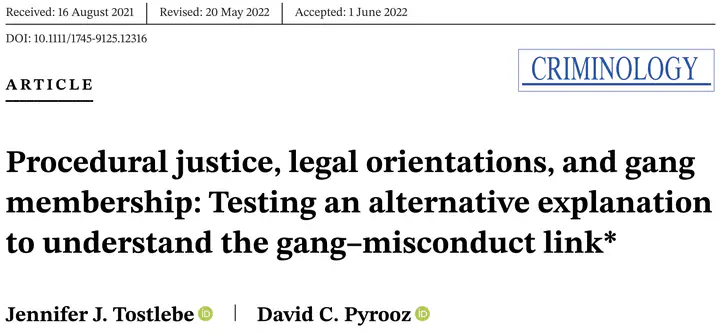Procedural justice, legal orientations, and gang membership: Testing an alternative explanation to understand the gang-misconduct link

Abstract
A top priority of prison authorities is maintaining a safe and orderly institutional environment. Gangs are believed to impede this objective, warranting bespoke policies and practices. Drawing on the process-based model of regulation, we depart from orthodox explanations for the gang–misconduct link and argue that gang affiliates are treated less fairly than nongang affiliates owing to suppression-oriented administrative policies and harsher day-to-day interactions with officers, which, in turn, impact compliance.
Type
Publication
Criminology